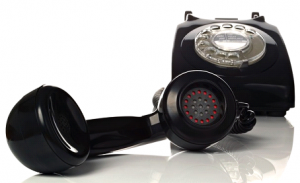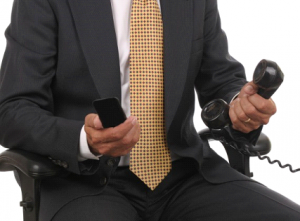There are many reasons why people buy cell phones. Some do it for the benefits and others, merely because everyone else is buying them. And if you end up buying an iPhone, you might automatically start looking at your landline a little more critically to see if you can get rid of it so you can save some money to make up for that bundle you just spent on your new cell phone. But before you proceed with cutting the cord, ask yourself a few questions to be sure your decision to eliminate the landline is the right one. Here are five reasons (but not the only five!) to help you decide. See if you agree.
- Need 911? HELP finds you!
During an emergency, 911 is able to track you when you call from a landline because your residential address automatically displays on the screen of the 911 operator, which isn’t the case with cellphones. If you have kids at home, your landline will be of great help as it is the most reliable connection to 911. Cell phones are good with their GPS facility while on road but they still cannot compete with the accuracy and dependability of a landline connection to the 911 office.
- Clear Communication Counts!
A landline will provide a crisp, crystal clear connection on every call whereas with a cellphone, you will inevitably experience dropped calls, interference or buzzing, and confusing situations where you are wondering if the other person can you hear you. In this fast paced world, a clear crisp communication network is important for which a landline works best.
- It Works Even When the Power goes Out
When the power goes out, a landline phone connection will still work in most cases. As long as you’re not using a cordless phone, an old fashioned telephone will work without electricity in your house. It’s required by the FCC so that you can still reach 911 and friends and family. Even if a major storm (tornado or hurricane) comes through the area, it might take away the cell connectivity, but its less likely that it will break the underground phone lines.
- Privacy
Did you know that some cellular phones use radio frequencies which can be easily intercepted? Eavesdroppers can easily use even the simplest devices or software to intercept the analog radio waves that carry wireless calls. After breaking into your private conversations, they can take down your credit card information while you’re making a purchase over the phone, or find out when you’ll be on vacation to plan their evil deeds. With a landline, however, you always enjoy a certain amount of privacy and safety.
- Home protection
Nowadays, many home security systems only work if a landline phone is in operation. And that is precisely because the home’s fire and burglar alarm systems are hardwired into the phone system to automatically alert authorities. Some new alarms my offer a cellular connection but that is at an added price and less reliability.
If the security systems and 911 prefer landlines, why shouldn’t you? Use your mobile phone but remember, landlines will always remain your safest bet!




